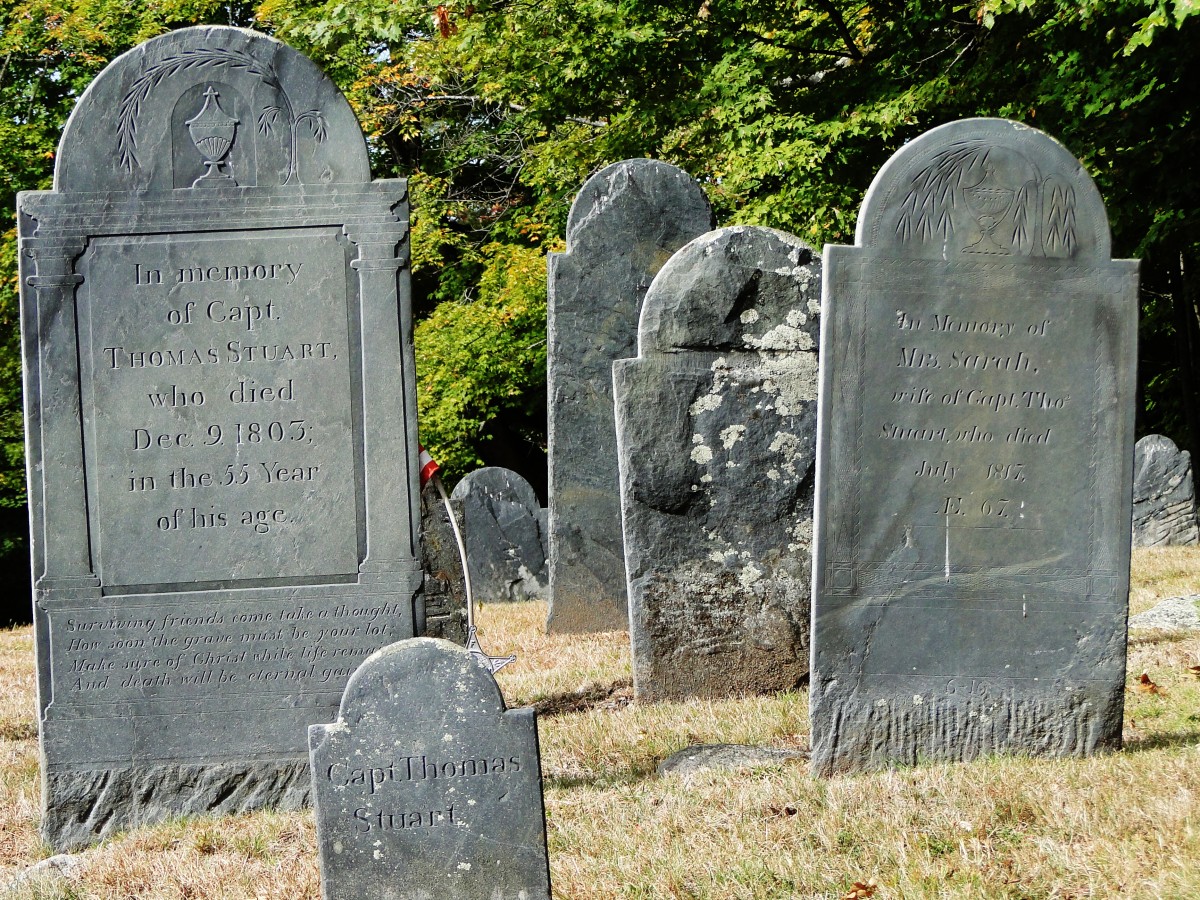Blog
Bulletin Articles
Reclaiming John 10:28
Tuesday, August 11, 2020
It is sad but true that often, the most emphatic refutation of doctrinal error is another error. Consider, for instance, Martin Luther’s reaction to the Renaissance Catholic practice of selling indulgences. He objected, and rightly so, to the notion that we could purchase our salvation, whether with money or with righteous actions.
However, he concluded that only faith, apart from any action whatsoever, is all that is necessary for salvation. That’s no more correct than the sale of indulgences is! In their turn, some brethren, in response to faith-only salvation, have taught that we earn our way to heaven, which also is not true. And so the cycle continues.
I believe a similar process is at work in the way that many Christians handle John 10:28. This is a famous Calvinist proof text. They argue that it teaches the doctrine of eternal security, that once someone is saved, it is impossible for them to fall away. Most in the churches of Christ have significant problems with this claim and point to the host of passages that imply or state explicitly that falling away is possible.
However, in the course of so doing, they strip the passage of much of its comfort. They spend so much time dwelling on what the text doesn’t mean (“Yes, we can fall away! See Hebrews 6:4-8.”) that they minimize what it does mean. As a result of this and similar exegetical failures, countless Christians are uncertain of their salvation and live in fear that they have fallen away without realizing it.
The solution to the problem is to focus less on Calvinism and to focus more on the words of Christ. John 10:28 isn’t a disconnected proverb. Instead, it’s part of an argument, and all we have to do is read one verse up to see who the “they” 10:28 is. According to 10:27, Jesus is talking about the sheep who hear His voice and follow Him. Those are the sheep who cannot be snatched out of His hand. He makes no promises concerning the sheep who have stopped listening and following.
Thus, if we want to know whether the guarantee of 10:28 applies to us, all we have to do is ask whether we have met the conditions of 10:27. Do we hear His voice? This does not demand perfect comprehension of us, because no one understands God’s revelation perfectly. It does require, though, that we are interested in His voice and are seeking to understand it.
Second, do we follow Him? This does not require perfect obedience. As we learn in 1 John 1, even those who walk in the light still sin. It does mean, though, that in the overall course of our lives, we are striving to be obedient.
If these things are true of us, guess what? We’re safe! Jesus has promised to protect us, not because we’re perfect (if we were, we wouldn’t need Him) but because we aren’t. So long as we are with our Shepherd, the devil cannot snatch us out of His hand.
Of course, if we abandon our Shepherd, we place ourselves in deadly danger. However, by definition, that’s what faithful Christians haven’t done. So long as we remain faithful, then, we can be assured of inheriting eternal life, not because of ourselves, but because of the One who loved us and gave Himself for us.
Blindness and Sin
Tuesday, August 04, 2020
John 9:39-41 contains one of the more enigmatic exchanges in the Bible. In the rest of the Bible, blindness (either literal or metaphorical) is a bad thing. When Jesus calls the Pharisees “blind guides” in Matthew 23:16, He is not complimenting them! However, in John 9, blindness (at least initially) is a good thing.
The conversation begins in v. 39, when Jesus reveals that one of His works is vision transformation. Through Him, those who are blind will see, spiritual versions of the blind man He just physically healed, but, provocatively, those who can see will become blind.
The Pharisees who are with Him don’t like the sound of this. They believe that, spiritually speaking, they are among the people who can see. They’ve got it all figured out. However, Jesus’ words predict an ominous fate for them. They don’t like that idea, so they press Jesus for a less offensive clarification. When You said that people who see will become blind, Jesus, You weren’t talking about us, right???
However, Jesus doubles down with a paradox. He tells them that if they were blind—clueless, lost in darkness—they would have no sin. However, because they claim to be spiritually sighted, their sin remains.
Man! What’s a poor self-confident spiritual elitist to do?
Jesus’ implied answer is “Repent!” The Pharisees thought they had it all figured out, but they didn’t. They thought they were righteous, but they weren’t. The kind of sight they had wasn’t true spiritual vision. It was self-delusion.
What’s more, their form of spiritual blindness was even more dangerous than the blindness of the tax collector or the prostitute. The latter at least could come to an awareness that they needed help from Jesus. They didn’t think they saw. The Pharisees, however, believed that they saw already, so they never would seek help for a problem they refused to acknowledge
It's easy for us to think of outsiders we know who have this problem. The self-assured member of a denomination who refuses baptism for the forgiveness of sins because he already “got saved” certainly is present in this passage. If you think you see already, your sin remains.
However, it is much more difficult for us to consider ourselves in the mirror that Jesus holds up. We know what the Bible says. We know and follow the truth ourselves. We see, right?
Of course, the Pharisees gave the same answer for the same reason. They knew Torah. They devoted themselves to keeping the Law. The problem wasn’t the things they saw. It was the things they didn’t—their hypocrisy, their greed, their arrogance, and their hard-heartedness.
The same is true for us. The most dangerous sins in our lives aren’t the ones we see. They are the ones we don’t see, the Scriptures we gloss over, the evil actions we excuse in our hearts. The problem is the dark corners of our lives where we are blind.
Rather than priding ourselves on our vision, we continually must humble ourselves before the Lord because of our blindness. We must seek ever greater clarity of vision, but most of all, we must seek mercy from the God who helps us when we cannot help ourselves. Our hope never can be in our own clear sight. It must be that He sees us clearly yet loves us regardless.
The Pharisee Trap
Monday, July 27, 2020
The devil has been hard at work for millennia, so he knows the best way to tempt any kind of person, even religious people. We see his handiwork plainly in the Pharisees of the New Testament. Even though many who accuse Christians of Pharisaism don’t know what they’re talking about, we still need to pay attention to the true characteristics of the Pharisees so that we don’t end up like them ourselves.
First, Pharisees care more about appearances than the heart. In Luke 11:39-41, Jesus accuses them of washing the outside of dishes while leaving the inside filthy. How about us? It’s easy to show up for Sunday-morning services looking like the picture of a saint, while our hearts are filled with evil desires that we spend the rest of the week living out. Other Christians might be impressed, but God won’t be.
Second, Pharisees major in minors and ignore majors. As Jesus points out in vs. 42, they tithed garden herbs (paying attention to a tiny detail of the Law of Moses) while neglecting justice and the love of God. We can pride ourselves on going to the “right” church, but if we aren’t here because we love Jesus and long to serve Him, it won’t do us any good.
Third, Pharisees like impressing others. Luke 11:43 reveals that they loved prominent seats and respectful greetings. They viewed that as their due for their spiritual attainments. Even though the practice of Christianity doesn’t have the same status in our larger society, self-interest still can creep into our faith. Let’s imagine that we’ve worked really hard on something for the church, but nobody compliments us on it or notices that we’ve done it. The Pharisee will be bothered by that, but the disciple won’t care. They weren’t doing it for other people in the first place.
Fourth, the Pharisee leads others astray. In v. 44, Jesus compares them to unmarked tombs. This is another reference to the Law. According to Numbers 19:16, anyone who touched a grave became unclean for seven days. Thus, the Jews customarily whitewashed tombs so that other Jews would know not to touch them. By contrast, an unmarked grave could spread uncleanness to those who did not know that they had been contaminated.
By extension, then, the Pharisees spread corruption to others who didn’t realize it—by teaching them to be Pharisaical instead of holy. When we practice a hypocritical, checklist-based, lifeless version of Christianity, our teaching will be flawed too. Rather than teaching others to become like Jesus, we will teach them to become like us.
Sadly, Pharisaism always will be a problem among God’s people. With the devil’s help, we can turn even faith in Christ into a tool of self-promotion. We only can guard against it by keeping our eyes focused on Him. When we seek Him in humility, devotion, and love, the temptation to hypocrisy can find no root in our hearts. That won’t make Satan very happy, but it will please the Lord.
Faith and Family
Monday, July 20, 2020
On my father’s side, I can trace membership in the Lord’s church back to my great-great grandparents, the Dawsons (Great-Great Grandpa Bassford was a Methodist lay preacher, alas). On my mother’s side, my Breuer ancestors were Christians before the Civil War. I count myself blessed to be descended from generations of people of faith. Instead of the legacy of sin and its consequences with which many Christians struggle, my familial legacy generally is one of righteousness.
However, being related to righteous people is a far cry from being righteous oneself. Jesus makes this point in Luke 11:27-28. A woman in the crowd blesses Mary for having given birth to Him, but He replies, “Rather, blessed are those who hear the word of God and keep it.” The Lord here is not denying that His mother was blessed (see Luke 1:42, for instance). Instead, He wants us to understand that as important as family can be in our spiritual lives, serving God ourselves is far more important.
Sadly, many people from godly families miss the point. They don’t necessarily abandon the faith of their parents and grandparents entirely, but neither do they embrace it for themselves. They keep showing up at church because that’s easier than having a knockdown drag-out fight with Mama, and they avoid public sin (same reason), but their lives do not reveal devotion to Christ.
Regular Bible reading? Nope. Prayer without ceasing? Not hardly. Evangelism? Ask somebody else. Hatred of secret sin? Well. . .
Sure, they keep showing up for services, on Sunday morning, at least, but one gets the distinct impression that if their family had been associated with some denominational church instead, that denominational church is where they would be attending. They are generational Christians, and their faith is somebody else’s, not their own.
Though being a generational Christian is by definition following the path of least resistance, that path also is one of deadly danger. Those who are righteous only when it is easy will stray when righteousness becomes difficult, and the devil is very good at accomplishing exactly that. The first truly alluring temptation, the first difficult trial, and the generational Christian will fall like an overripe fruit.
However, a significant break with the church may not even be necessary for Satan to achieve his goal. The Laodiceans were churchgoers. They weren’t charged with egregious sin like the Christians in Pergamum and Thyatira. In fact, they weren’t up to much at all in spiritual terms, and that was exactly the problem. In Revelation 3:19, Jesus warns them that they need to repent. Lukewarm disciples represent a win for the devil, not the Lord, and apathy is as much a part of the makeup of generational Christians as godly ancestors are.
There’s nothing wrong with having Christian parents and grandparents, but there’s something terribly wrong with trying to coast into heaven on their spiritual momentum. Even if we learned our faith from our loved ones, we have to make that faith our own. We have to be the ones who choose to hear the word of God and keep it ourselves. If we do not, our precious family legacy will count for nothing.
The People Who Don't Want to Be Free
Friday, July 17, 2020.jpg)
One of the most revealing exchanges in the Bible occurs in John 8:31-33. Jesus promises the Jews freedom through following Him and learning His truth, and the Jews turn Him down flat. The problem is that in order to be freed, the Jews had to have been slaves, and they don’t want to acknowledge that. In their own words, “We are descendants of Abraham, and we have never been enslaved to anyone.”
Logically speaking, the first half of the statement doesn’t appear to have a whole lot of relevance to the second. In the Bible, Abraham’s descendants spend a lot of time being slaves: to the Egyptians, to the Moabites, the Midianites, and the Philistines, and to the Assyrians and the Babylonians. In fact, even since the restoration from captivity, the Jews largely have been under the control of a foreign power and not ruling themselves. They certainly wanted a Messiah who would liberate them from the Romans!
However, Jesus isn’t even talking about that. He’s talking about slavery to sin, which everyone since the time of Adam has experienced. Nonetheless, because they hate the label of “slave” so much, the Jews refuse to listen to the One who offers them freedom.
Today, much the same thing happens. We live in a sin-sick society, and yet perversely, so many celebrate the sins that enslave them as sources of freedom. We are sexually liberated, and yet sexual sin leaves in its wake STD’s, abortion, single-parent families, divorce, and broken homes. We are free to pursue our greed, and the result is giant houses that we don’t spend time in filled with junk we don’t use, and ever-increasing salaries vanish beneath ever-increasing mountains of debt. We are free to speak our minds, but our careless words produce contention, division, and bitterness, both in our in-person relationships and online.
The result appears paradoxical to anyone who doesn’t understand the schemes of Satan. We have all this freedom, and we exercise our freedom freely, but we end up enslaved and unhappy. Some kind of freedom that is!
So too, submission to Christ leads to a paradoxical result. Discipleship is demanding. It requires us to shun the worldly pleasures in which our friends and neighbors revel. Rather than looking like fun, walking the strait and narrow looks like a lot of work!
However, when we discipline ourselves for the purpose of godliness, we make a strange discovery. Just as the freedom of sin leads to servitude, so too servitude to Christ leads to freedom. We learn that the things we are tempted to do are not good for us and do not benefit us, and we find joy in the practice of righteousness. We are set free from sin, not only from its guilt, but from the misery of its dominion.
The life of the Christian is indeed a life of freedom, a life intended for the flourishing of humankind. When we are not crushed beneath our pleasures, we can dedicate ourselves to the noble joys of loving God and loving one another. We are freed to be merciful, to be compassionate, to be kind, to be peaceable, to be gentle, and to be grateful. Ironically, only when we give ourselves over wholly to Christ do we truly find ourselves.


